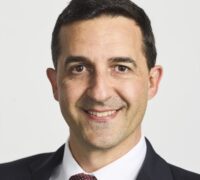
Don’t believe the hype: Making good use of a blackout
The Spanish blackout of April 2025 is an opportunity to strengthen electricity systems that have higher shares of renewables and should not be used as an excuse to slow down the energy...

Published February 5, 2024 in Talent • 7 min read
As they towards net zero, many Australian businesses are on the path to addressing climate risk. Amidst the proposed introduction of mandatory ESG reporting in Australia, many chief financial officers are grappling with a critical challenge: seamlessly integrating finance and sustainability teams. According to LinkedIn’s Global Green Skills Report 2023, the share of green talent in the workforce rose by a median of 12.3 per cent. However, the growth in demand for green skills is outpacing the increase in supply, and it’s clear that more skilled professional accountants and finance experts are needed in this space.
As Australia’s financial reporting requirements extend to encompass ESG concerns such as mitigating modern slavery from supply chains, business leaders and key stakeholders must stay on top of the fast-changing legal and ethical requirements in this space to ensure they meet the requirements. This means businesses face the challenge of bringing sustainability and finance teams together. But what do senior executives need to know about changes to mandatory climate reporting? And is there a feasible way to translate the language of sustainability into finance?
UNSW Business School’s Paul Andon spoke with Aletta Boshoff, Advisory Partner and National Leader of IFRS, Corporate Reporting & Sustainability at BDO, and Brendan O’Dwyer, Professor of Accounting at UNSW Business School and the University of Amsterdam, about the evolving role of CFOs, the challenges of integrating sustainability into financial reporting, the need for external expertise, and the potential for a shift in professional education to address the changing landscape of reporting and accountability.
On January 12, 2024, the Australian Government unveiled draft legislation proposing substantial reforms to create a climate risk disclosure framework. The legislation suggests amendments to the Australian Securities and Investment Commission Act 2001 and the Corporations Act 2001, mandating climate-related financial disclosures within a dedicated sustainability report as part of certain entities’ annual reports. Additionally, entities must secure an assurance report on the sustainability report from their financial auditors.
While the consultation is still open until 1 March 2024, sustainability reporting is anticipated to be mandatory in Australia for large entities by the end of the year. These changes mean finance teams are experiencing a growing integration trend with sustainability teams within organizations. However, doing so has created several unique challenges. Notably, differences in the interpretation of data, especially concerning carbon emissions data and financial reporting data.
O’Dwyer explained that while the finance function assumes a leadership role due to its accountability linked with annual reports and financial statements, challenges arise in fostering consensus among teams regarding the quality of information and standardizing processes for collecting, processing, and ensuring data accuracy. He said: “There is a very different conception of data [quality] between the different individuals and a very different information system involved in gathering, say, carbon data, emissions data, etc., than there will be for financial reporting.

“You need to get talent from outside most financial institutions.”- Brendan O’Dwyer, Professor of Accounting at UNSW Business School and the University of Amsterdam
“In the organizations we’ve been studying, the finance function is now taking control of that information –but we’re finding that there are difficulties, particularly in Europe, in getting teams together to agree on the quality of information and how it’s going to be gathered, processed, assessed, and internally assured to a standard that will satisfy the CFO – and the board.”
While this is proving to be a key challenge, there have also been several benefits that have come out of the changes implemented in December 2023. Boshoff explained, “We’ve seen a big shift since December last year. Previously, when we tried to speak to organizations about sustainability, we could only get an audience with the sustainability experts. It was hard to get the attention of the board, audit and risk committee, CFOs, and CEOs, and we were saturated with the sustainability people we were speaking to.
“Then, in December, with the consultation paper surrounding mandatory reporting in the annual reports, suddenly we’re speaking to the audit and risk committees, CFOs, and CEOs. This is now coming in the annual report. It’s sitting next to credible, audited financial statements. It is how we communicate risk management and the importance of sustainable development with our investors and our finances in our general-purpose financial report. This is our responsibility towards building a sustainable future. We must deal with the auditors about the information in this general-purpose financial report as well as other information in the broader report. We now have to be across it.”
Sustainability covers everything in the business.- Aletta Boshoff, Advisory Partner and National Leader of IFRS, Corporate Reporting & Sustainability at BDO
As part of bridging this gap, O’Dwyer explained that bringing in external experts and consultants is key to addressing the current shortage of in-house sustainability experts. “When I say in-house expertise, I mean enhanced expertise that is good enough to satisfy what I, as a trained financial auditor, would require for information,” he said.
“You need to get talent from outside most financial institutions. That may be different from the answer people want to hear. They may say: ‘Oh, here we go, more regulations and cost increases.’ But the problem is that only a few top environmental impact and sustainable finance consultants are out there. I know of organisations that brought in somebody with 20 years of experience. They told me it was like breathing again because they received so much focused advice on where to go and what to do.”
While acknowledging the potential cost increase of bringing in sustainability-related experts, external expertise is often necessary to meet the sustainability standards that CFOs, audit committees, and boards expect.
While acknowledging the potential cost increase, external expertise is often necessary to meet the information standards expected by CFOs, audit committees, and boards. O’Dwyer said, “The last thing a CFO wants to hear from someone like me is: ‘You need to increase your cost base by bringing in a consultant.’ Unfortunately, the in-house expertise is often not there, even in the best organizations.”
However, according to Boshoff, relying solely on consultants isn’t a long-term solution and organizations must focus on crafting their in-house capabilities. “Education and training is incredibly important. It’s our responsibility to educate, train, and work with universities to get the message out there, or offer free training to get people on top of this and help them with details.
“Technology will play an important role in gathering data. Yes, we might help them initially, but we need to set them up for long-term success,” she said.

“A mindset shift is required within organizations to view sustainability reporting not just as a compliance exercise but as something positive that can benefit the organization.”
Senior managers should know that upskilling workers’ green skills to meet new sustainability standards adds value to a green economy and can increase diversity within the finance sector. “It’s an opportunity to attract different individuals into the profession,” explained Boshoff. So, we can now attract people from different backgrounds who are not just interested in accounting or debits and credits, but maybe they come from a science background,” she said.
“Sustainability covers everything in the business – cybersecurity, privacy lawyers –and there are so many different skill sets already out there that we can attract to our profession to work with us. I think that’s an opportunity. It’s not just the traditional accountants – it’s much broader.”
According to O’Dwyer, a mindset shift is required within organizations to view sustainability reporting not just as a compliance exercise but as something positive that can benefit the organization. Reframing this as an opportunity for growth will assist organizations in making the most of the changes.
“There needs to be some way of communicating climate-related requirements to financial institutions in a manner that turns them into something positive, that will help the organization in some way, and not just as another pesky compliance exercise,” O’Dwyer explained.
“Because once it stays like that, in the mind of the CFO and his or her team, that’s going to create all sorts of difficulties in terms of investment. People will feel under threat. And I’m sure people in sustainability teams will also sometimes feel that way if they’re not heavily involved in what they believe is their expertise.”
This article is republished with permission from UNSW BusinessThink, the knowledge platform of UNSW Business School. You may access the original article here.

Professor and Head, School of Accounting, Auditing and Taxation, UNSW
Paul has over 25 years of experience as an accounting practitioner, educator, and researcher. Paul's educational expertise concentrates on developing curriculum and teaching approaches for management/accounting courses in MBA, coursework Masters, and Bachelor Programs.

July 9, 2025 • by Cédric Philibert in Sustainability
The Spanish blackout of April 2025 is an opportunity to strengthen electricity systems that have higher shares of renewables and should not be used as an excuse to slow down the energy...

July 7, 2025 • by Julia Binder, Esther Salvi in Sustainability
Lindström found that expanding its business to Asia required overcoming cultural barriers as much as building new services and infrastructure while adapting itself to local needs. ...

June 16, 2025 • by Núria Ibáñez-García in Sustainability
Driving change in a system where progress can be slow and regulation is tight isn’t easy. But for Núria Ibáñez-García, sustainable transformation starts with steady influence, applied from within. ...

June 9, 2025 • by Julia Binder, Esther Salvi in Sustainability
Dr. Kiri Trier, the beauty giant’s regional sustainability chief, explains her drive to change customer habits and make cutting waste, refilling, and recycling part of their daily bathroom routine....
Explore first person business intelligence from top minds curated for a global executive audience